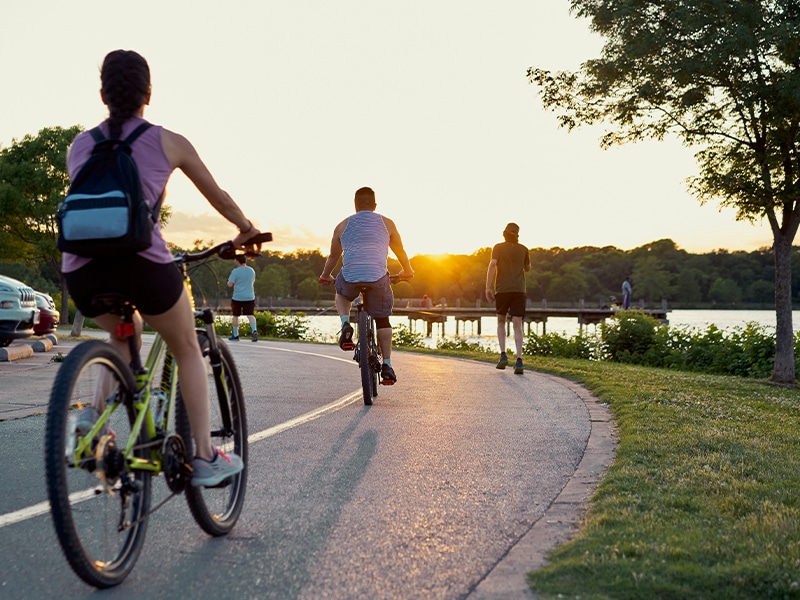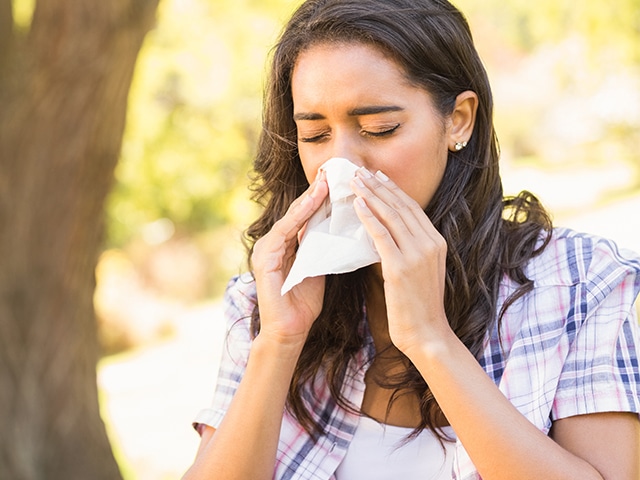After months cooped up indoors with the pandemic surging, we’re all eager to get out of the house.
And now that we know COVID-19 doesn’t spread as easily in open spaces outdoors, it makes sense that more people are hitting the trails, taking a lap around the neighborhood, or just soaking up the sun on their patios.
But there are other hazards to contend with — namely air quality, says Stephen Mueller, MD, pulmonologist on the medical staff at Methodist Charlton Medical Center.
“Being in the city, we definitely have a lot of pollutants, especially in the heat of summer,” Dr. Mueller says.
A HOST OF HEALTH PROBLEMS
Air pollution, such as particulate matter, ozone, and nitrogen dioxide, can be linked to all kinds of health issues, according to the World Health Organization (WHO). That includes asthma flare-ups, reduced lung function, respiratory infections, lung cancer, stroke, coronary artery disease, and chronic obstructive pulmonary disease (COPD).
If you have asthma, COPD, or another chronic condition that puts you at higher risk of harm from air pollution, carefully weigh the risks and benefits of spending time outdoors when air quality is poor.
Sometimes, the best that city dwellers can do is choose the right time of day to get their fix of fresh air.
“It’s best to get out early in the morning right when the sun is coming up or later in the evening when the sun is going down,” Dr. Mueller says. “The pollutants are less prevalent, plus the lower temperatures are more comfortable.”
WORSE IN THE HEAT
Extreme weather can exacerbate poor air quality, according to the National Centers for Environmental Information. For example, heat waves tend to trap pollutants in the stagnant air, leading to irritation in the respiratory system when inhaled.
“Pollutants become a bigger problem in the afternoon because the heat does not allow them to dissipate,” Dr. Mueller says. “That’s why it doesn’t clear up in the summer as effectively as it does in the fall, winter, and spring.”
It’s not just man-made smog that causes problems. Naturally occurring allergens can also make being outdoors miserable.
NO ESCAPE FROM ALLERGIES
North Texas is well known for a climate that wreaks havoc on allergy sufferers.
“We see a lot of pollen in this area,” Dr. Mueller says.
Irritants such as dust and pollen make it especially difficult to enjoy the great outdoors, and many residents are left with runny noses, watery eyes, and headaches, among other symptoms.
So as we make our way through August, here are a few precautions we should take when we venture outside:
- Be informed about your area’s air quality forecast. Use the U.S. Air Quality Index at airnow.gov to help guide your outdoor plans.
“You can also check local TV and radio stations,” Dr. Mueller says. “Smart watches and phones will also have that information available.”
- Choose your outdoor exercise spot wisely. Don’t go for walks, runs, or bike rides in or near areas with high air pollution levels. This means busy roads or places near municipal solid waste incinerators or industrial parks.
- Consider adjusting your exercise plans. Think about moving your workout indoors if air quality is poor. Just be cautious if you decide to hit the gym during the pandemic, Dr. Mueller says.
“The gym should be enforcing all the proper safety guidelines and CDC recommendations to prevent the spread of COVID-19,” he says.
- Watch out for harmful gases in your home. Outdoor pollutants don’t always stay outside. They can make their way indoors, where the air may already contain higher levels of harmful gases and particles than outside, according to the National Safety Council. Closing the windows, banning smoking inside, vacuuming and dusting regularly, cleaning up mold, and using an air purifier can go a long way in protecting your home or workplace.
“Make sure you change your air filter in your home and car as recommended,” Dr. Mueller says. “You can check with specific manufacturers on how often that needs to be done.”


